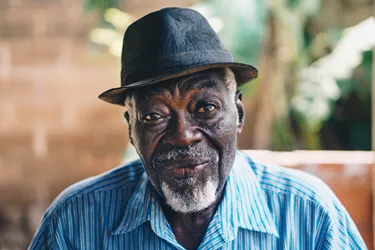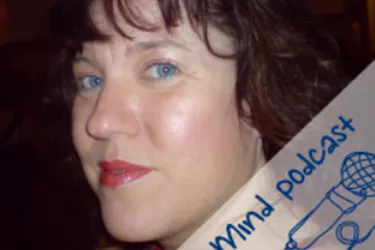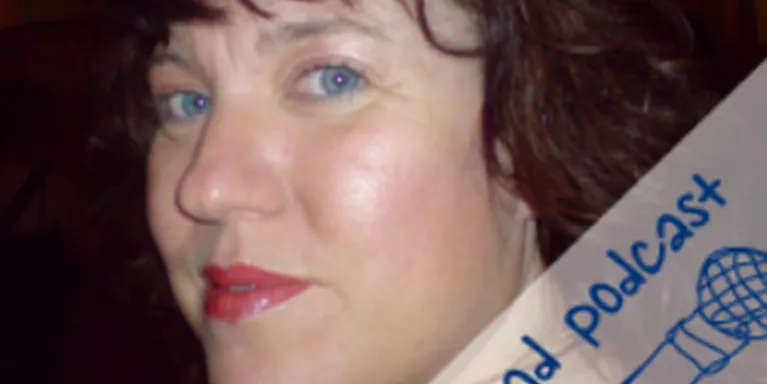The misconceptions surrounding SAD
Vicky talks about her experience of Seasonal Affective disorder (SAD) and the misconceptions that surround it, how getting a diagnosis has made a big difference and things she does to support her own mental health.
Imagine spending half the year happy and then one day waking up and feeling different.
You can’t work out why and you try and continue on with your day. The next few days seem darker, longer and the overwhelming sense of ‘why is everything such a struggle?’ it hangs over you like a dark cloud.
"Then it hits you, it’s the time of year."
Seasonal Affective Disorder or SAD affects thousands of people every year but it is clouded in misconceptions and a lack of awareness and understanding. I have SAD and have struggled with it ‘officially’ for the last four years, although unofficially I have probably experienced the disorder for a lot longer.
I think that SAD has always been a part of my life. As some of my family members suffer from the same disorder it makes it easier to admit to feeling down and I have people who understand what it feels like and know it’s real.
I love the summer, I love the sun and warm weather. Winter, on the other hand, fills me with dread. Even though I love fireworks, Christmas and other winter festivities I will never understand how people can love the winter months and find the nights cosy. For me, SAD creeps up on me during October and begins to ease in March…
"During this time I feel down, upset and ready to cry at even the tiniest thing."
Depressed and anxious , I don’t see the fun in anything. I have a lack of appetite and getting out of bed every morning feels like climbing a mountain.
Things I would normally do, like going to a gym class and socialising with friends, are a struggle. Putting on a mask every day at work to try and act ‘normal’ and ’ok’ is tiring.
So what has helped me? There have been numerous ways I have learnt to control my SAD. The biggest being accepting that I suffer with it and becoming more aware of when it hits so I can get help.
A wake up lamp, which gradually lights up the room before my alarm goes off so I wake up to a bright environment has worked wonders at making the darkest of morning bearable and helping me to start the day with a positive mindframe. Staying active, not isolating myself and trying to keep to the same routine as summer has also been key.
Before I was diagnosed with SAD, I attended the odd exercise class but wasn’t exactly active. But SAD has completely changed this.
"The year I got diagnosed I was at my lowest and I didn’t want to do anything involving leaving the house."
During this time my mum told me if I joined a gym she would help pay for the membership. This changed my life.
I started going to classes a few times a week and not only did it push me to live a healthier and active life but it became a hobby I love and became a mental release.
For me that hour in the gym became an escape, I didn’t worry about anything and once I was there I felt more positive and optimistic thanks to the endorphins.I’ve never looked back.
"SAD doesn’t have to be negative, it can also be a positive."
Now I keep this up in the summer months and push myself to stick on my trainers and go even when all I want to is lie in a ball and feel sorry for myself.
Something else that I have had to accept is the use of anti-depressants. There is such a stigma around these tablets and this was the hardest part for me to come to terms with. I didn’t want to take them and truthfully still don’t feel 100% happy about the fact I do or other people knowing I do.
My GP understands my problem and has helped me gain access to counselling. The best advice I was given about SAD was the Dr’s analogy:
“If you had winter asthma then we would give you an inhaler, you have SAD so we give you tablets to help for a few months”

There are many misconceptions surrounding SAD, I’ve heard them all and have outlined 5 of my favourites.
Misconception #1: “The weather can’t affect you that much” and “SAD isn’t real”
Whilst it is correct to say the weather doesn’t affect me, the changing seasons do. SAD is often triggered by the short days and less exposure to sunlight rather than the rain or cold – although this I find doesn’t help.
Misconception #2: “Winter never made you sad out when you were younger so it can’t do now”.
I have been suffering for around four years and had my first onset in my early twenties. This is typical for most sufferers and I’ve always felt down in winter, I may just not have be aware of it at the time.
Misconception #3 “Everyone experiences low energy during the winter months you can snap yourself out of it."
Yes, the winter months can be a gloomy time of year but suffering from SAD is a lot different to just feeling sad and is something which impacts lives, relationships, careers and for some can be as debilitating as a physical illness. SAD is just as bad as depression. The only difference is SAD is a version of depression that happens at a specific time of year.
Misconception#4: “You're still showing up at work on time every day, so you must be fine”.
I am a prime example of how this is untrue. In the four years I have taken medication for my SAD, I have not had one day off relating to it. Putting on a smile and acting cheerful and happy can be what I’m best at. There are no external symptoms and most people would say that they would never think I suffered from any mental health problems but just because it doesn’t show and I’m functioning doesn’t mean SAD isn’t real or should be ignored.
Misconception #5: “There is no cure you just have to ride it out”.
SAD is treatable and can be managed. I do numerous things to lessen the severity of my symptoms which can range from talking about my feelings, staying active, keeping a gratitude journal, mindfulness, using light boxes and seeking help from a doctor.
SAD can make you sad and it is a hard concept to grasp that you feel fine for half the year and depressed, at what feels like the click of a finger, for the rest. Knowing there are other people out there who suffer and understand has been a huge help. So whilst I embark on another dark winter, I can see the light at the end of the tunnel.

Information and support
When you’re living with a mental health problem, or supporting someone who is, having access to the right information - about a condition, treatment options, or practical issues - is vital. Visit our information pages to find out more.
Share your story with others
Blogs and stories can show that people with mental health problems are cared about, understood and listened to. We can use it to challenge the status quo and change attitudes.

















